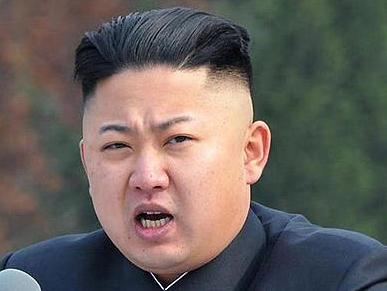Throughout its troubled history, the world has never quite witnessed anything like the North Korean regime of absolute fear and Kim Jong Un’s sick domestic and foreign policy reactions to it. The story of the Kim dynasty, reverentially called the Mount Paektu Bloodline, entails the most destructive totalitarianism of the founder Kim Il-sung, his son, Kim Jong-il, and his grandson, Kim Jong-un. Assuming power with the political and military assistance of the Soviet Union over the northern part of the divided Korean peninsula in 1948, Kim Il-sung quickly established his cult of personality, modeled after his mentor Josif Vissarionovich Stalin. Following the failed invasion of the south he enunciated his version of absolute leadership called Suryong and its ideological justification called Juche, an archaic version of national self-reliance, that became the founding political, economic, and cultural policy of North Korea.
His grandson, Kim Jong-un became North Korea’s Supreme Leader on December 29, 2011. In 2013, Paragraph 10 of Article 2 of the amended constitution, officially known as the Ten Fundamental Principles of the Korean Workers’ Party, enshrined the hereditary principle of the Kim family’s totalitarianism by stating that the party must be guided and the revolutionmust be led “eternally” by the “Paektu Bloodline.” Sporting the image of an intellectual populist, Kim Jong-un has surpassed his grandfather and father in ruthlessness and political irresponsibility. Having cruelly exterminated family members and outside loyalists alike, he has embarked on a single-minded pursuit of nuclear adventurism at the total detriment of the welfare of his subjects.
Presently, North Korea is threatening its neighbors, supporting the nuclear ambitions of several authoritarian regimes, and attempting to infect other unstable countries with the disease of nuclear recklessness. For these reasons, it is necessary for the rest of the world to learn how to protect themselves from North Korea’s global ambitions. It is also equally incumbent upon the rest of the world to understand the nature and the potential for growth of this dangerous phenomenon that threatens to deform and even destroy the political and economic fabric of many developing countries.
Essentially, the entire history of North Korea and that of the Kim dynasty can be reduced to a single word – fear. Promising progress through Soviet-style socialism against the former evils of Japanese colonialism, Kim Il-sung established an even more cruel regime of total submission of the people to a single individual – himself. In this way, he created countless new terrors that like the tentacles of an octopus surrounded his fledgling totalitarian regime. His attempts to free himself from those hostile forces only added to the anarchy and civil war within the North Korean society.
Moreover, by repressing the opposition, he dialed up the intensity of fear by his enemies and in himself too. Extreme subjugation could result in involuntary submission, but it could permanently harbor the seeds of violent revolts. This latter phenomenon is always possible, but rarely foreseeable. This certainty of action and reaction could be triggered by internal and external circumstances which cannot be controlled totally by any despot.
Thus, every totalitarian regime is always afraid of the subjects over whom it rules, as well as the outside world over which it has little or no control at all. Similarly, Kim Il-sung was never fully convinced that his regime could extract total submission at all times. Yet, the fear from the oppressed is only a part of the despot’s concerns. Equally threatening is the fear from his comrades, agents, spies, and collaborators.
For these reasons, there is no complete, total, and unconditional security for a despot. The Kim dynasty’s regime is a violent despotism that is fully aware of its irredeemable illegitimacy. This is the explanation of the Kim dynasty’s ruthless domestic regime and also of its highly belligerent international posturing. Since its fear from being overthrown is limitless, any attempt by foreign powers to persuade the North Korean regime of moderation is futile.
Therefore, the policies of three consecutive American presidents have been based not on realities, but on naivete and senseless illusions. While the entire history of North Korea has been rooted in the macabre fear and enormously disproportionate reactions to the former, only force that eliminates this totalitarian despotism can be successful. Realistically, neither China nor Russia could exert effective pressure on North Korea. Although the use of overwhelming force is an unattractive choice, there is no alternative to stop the cancer of the Kim dynasty from continuing to metastasize further. Sooner rather than later, the United States and its allies must make thedecision to completely eliminate the Mount Paektu Bloodline.
